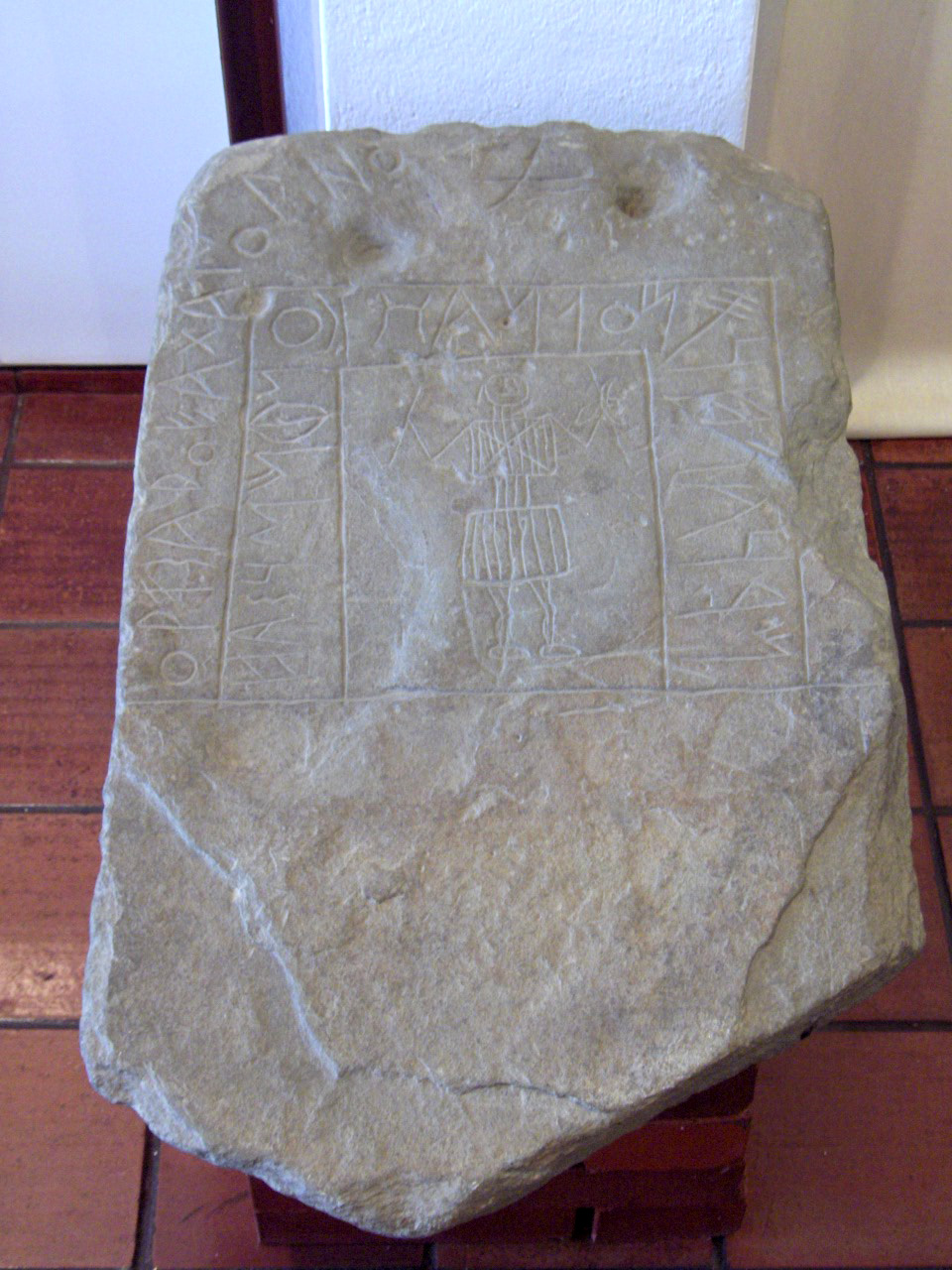Eres un simple negacionista, Smertrius. Me temo que tus razones no son objetivas, y son más bien interesadas. Chiaroni et al. 2009, demuestra que R-M173 (Eu 18 o WAMH) es occidental, atlántico, oriundamente atlántico..no alpino, ni renano, ni de Bohemia, si no originariamente atlántico, ¿cómo es posible que el clan L21 y S28, tan impolutamente celta para ti, tenga esta característica tan propia de los vascos?
En sus mapas de estudio (
http://www.pnas.org/content/suppl/2009/11/16/0910803106.DCSupplemental/0910803106SI.pdf)
puedes ver desarrollada su teoría en la que de R-M173 desciende R-M15 (Eu 19) y otros haplotipos, siendo además uno de los linajes protoindoeuropeos.
Para ti o todo es obsoleto o no válido cuanta demostración o soporte que se te ponga, actual o reciente. Sólo tu mapa HLA de Francia, única contribución positiva hasta el momento, es lo que para ti prevalece como única demostración teórica, aunque ¿qué parte y cuánta información de HLA ofrece ese ejemplo?, ¿qué época abarca?, ¿qué linajes recoge? ¿Se recogen muestras de alleles -A, -B, -X, -DRB1, -DQB1, non bHLA, MICA, TAP1, etc. o sólo la de poblaciones vecinas? PORQUE NO EXISTE NI UN SOLO RASTRO GENÉTICO HLA SOBRE UNA POSIBLE INVASION INDOEUROPEA que solo ha sido definida sobre dudosas bases lingüísticas.Y ¿qué me puedes decir de la mutación genética C282Y HFE, acontecida hace 40.000 años, y que parece caracterizar a algunos de nuestros teóricos celtas? ¿y de la mutación G101W que, aunque principalmente registrado en la Liguria, afecta a todo el phenotipo HLA-DRB1*04, característico de las poblaciones hallstátticas, pero QUE NO SE REGISTRA EN LA PENÍNSULA IBÉRICA?
Ni rastro de hallstáticos ni de latenienses en la Península Ibérica, Smertrius, y sin embargo se hablaron lenguas celtas, mucho antes de la existencia de los propios galos.
¿Por qué la Universidad de Colonia lleva 19 años excavando el santuario prerromano de Donón (Pontevedra)? ¿por qué Koch, Wodtko y otros especialistas están empeñados en buscar evidencias en la península? Cuando Hallstatt comenzaba a difundirse culturalmente, las gentes de la Península hablaban ya lenguas celtas establecidas mucho antes y hacían ritos tipológicamente definidos como celtas. Perigrinaciones seculares como a este santuario de Donón (por cierto topónimo similar a otro Donon de la Galia, del celta *dubnôn) que se ubicaba en el oppidum de Berobriga (hoy Monte do Facho). Esa es la realidad, Smertrius, ni rastro de invasiones indoeuropeas, ni rastro de invasiones celtas, aunque puedes creerte lo que te venga en gana, con el fin de satisfacer tu ego.
¿Tienes alguna obsesión con el pueblo bereber? A parte de su desgraciada poca contribución en nuestros genes (gallegos), este antiquísimo (30.000 años) y gran pueblo cuyos orígenes debemos situar en alguna parte del Cáucaso, genéticamente formado por un componente euroasiático: H, U, JT, V = 90.5% y norte africano: U6 = 9.5 %, está presente en una
parte significativa, no escasa, pequeña, irrelevanta, insignificante, como tu dices o quieres imaginar, sino, repito, en una
parte significativa, como demuestran varios marcadores de HLA, de la composición cromosómica europea (Holanda, Suiza, Bélgica, Alemania...Islas Británicas).
Desgracia que fuese tan poca su contribución genética en Galicia, que ni siquiera hemos heredado su 4% de rutilismo actual, cifra semejante al de Escocia, ni su blondismo, ni siquiera, y ni Francia tampoco, su porcentaje de ojos azules, 40%.
Como argumento para negar la celticidad de una determinada zona es, con mis debidos respetos, un absurdo, una farsa, porque lo mismo podría yo afirmar, con respecto a Austria (y concretamente al Tirol) de su no celticidad debido a sus porcentajes tan elevados de T-M70*, bastante más que el 6'3 o 7 de E-M80*de Galicia.
Te guste o no la mutación de S116 en sus subclades L21 y S28 pertenecen al ámbito del atlántico WAMH, por lo tanto NUNCA podrás evitar su relación con esta dimensión. Considerarlo como exclusivamente celta, como nacida por generación espontanea, es una interpretación tan fantasiosa e imaginaria como acientífica y arbitararia, que sólo conlleva a pensar en
matices étnicas exclusivistas, que el
término celta jamás ha tenido salvo en su zonas originarias: Hispania y la Celtica de la Galia desde el Marne y Sena hasta el Garona (núcleo precisamente no originario ni de Hallstatt ni de La Tène). La palabra celta es básicamente un simple concepto lingüístico.
Cuando esos nuevos celtas, que tu propones, entran en la historia, otros, mucho más antiguos que éstos y que habitaban por toda la costa atlántica, llevaban hablando esa lengua llamada celta desde el megalítico (3000 años a.C. como dice tu amado W. Kruta, 2001:41).
No pierdo más el tiempo discutiendo con una persona que niega la "celticidad" de S116, para afirmar luego que dos subclades inmediatos y específicos, de manera arbitraria, si tienen esa característica (¿étnica?). Si S116 no comporta esa celticidad, tal y como es definida tradicionalmente, raro será que los tenga sus subclades. Es un absurdo que no llega a ninguna parte, salvo la de imponer un criterio basado en conceptos personales y lleno de complejos.



